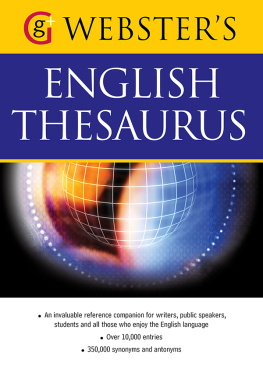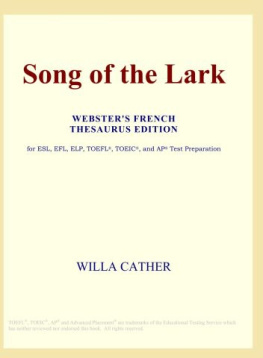Scanned by Dianne Bean.
Proofed by Doug Levy.
THE ANTI-SLAVERY CRUSADE, A CHRONICLE OF THE GATHERING STORM
BY JESSE MACY
CHAPTER I. INTRODUCTION
The Emancipation Proclamation of President Lincoln marks the beginning of the end of a long chapter in human history. Among the earliest forms of private property was the ownership of slaves. Slavery as an institution had persisted throughout the ages, always under protest, always provoking opposition, insurrection, social and civil war, and ever bearing within itself the seeds of its own destruction. Among the historic powers of the world the United States was the last to uphold slavery, and when, a few years after Lincoln's proclamation, Brazil emancipated her slaves, property in man as a legally recognized institution came to an end in all civilized countries.
Emancipation in the United States marked the conclusion of a century of continuous debate, in which the entire history of western civilization was traversed. The literature of American slavery is, indeed, a summary of the literature of the world on the subject. The Bible was made a standard text-book both for and against slavery. Hebrew and Christian experiences were exploited in the interest of the contending parties in this crucial controversy. Churches of the same name and order were divided among themselves and became half pro-slavery and half anti-slavery.
Greek experience and Greek literature were likewise drawn into the controversy. The Greeks themselves had set the example of arguing both for and against slavery. Their practice and their prevailing teaching, however, gave support to this institution. They clearly enunciated the doctrine that there is a natural division among human beings; that some are born to command and others to obey; that it is natural to some men to be masters and to others to be slaves; that each of these classes should fulfill the destiny which nature assigns. The Greeks also recognized a difference between races and held that some were by nature fitted to serve as slaves, and others to command as masters. The defenders of American slavery therefore found among the writings of the Greeks their chief arguments already stated in classic form.
Though the Romans added little to the theory of the fundamental problem involved, their history proved rich in practical experience. There were times, in parts of the Roman Empire, when personal slavery either did not exist or was limited and insignificant in extent. But the institution grew with Roman wars and conquests. In rural districts, slave labor displaced free labor, and in the cities servants multiplied with the concentration of wealth. The size and character of the slave population eventually became a perpetual menace to the State. Insurrections proved formidable, and every slave came to be looked upon as an enemy to the public. It is generally conceded that the extension of slavery was a primary cause of the decline and fall of Rome. In the American controversy, therefore, the lesson to be drawn from Roman experience was utilized to support the cause of free labor.
After the Middle Ages, in which slavery under the modified form of feudalism ran its course, there was a reversion to the ancient classical controversy. The issue became clearly defined in the hands of the English and French philosophers of the seventeenth and eighteenth centuries. In place of the time-honored doctrine that the masses of mankind are by nature subject to the few who are born to rule, the contradictory dogma that all men are by nature free and equal was clearly enunciated. According to this later view, it is of the very nature of spirit, or personality, to be free. All men are endowed with personal qualities of will and choice and a conscious sense of right and wrong. To subject these native faculties to an alien force is to make war upon human nature. Slavery and despotism are, therefore, in their nature but a species of warfare. They involve the forcing of men to act in violation of their true selves. The older doctrine makes government a matter of force. The strong command the weak, or the rich exercise lordship over the poor. The new doctrine makes of government an achievement of adult citizens who agree among themselves as to what is fit and proper for the good of the State and who freely observe the rules adopted and apply force only to the abnormal, the delinquent, and the defective.
Between the upholders of these contradictory views of human nature there always has been and there always must be perpetual warfare. Their difference is such as to admit of no compromise; no middle ground is possible. The conflict is indeed irresistible. The chief interest in the American crusade against slavery arises from its relation to this general world conflict between liberty and despotism.
The Athenians could be democrats and at the same time could uphold and defend the institution of slavery. They were committed to the doctrine that the masses of the people were slaves by nature. By definition, they made slaves creatures void of will and personality, and they conveniently ignored them in matters of state. But Americans living in States founded in the era of the Declaration of Independence could not be good democrats and at the same time uphold and defend the institution of slavery, for the Declaration gives the lie to all such assumptions of human inequality by accepting the cardinal axiom that all men are created equal and are endowed with certain inalienable rights, among which are life, liberty, and the pursuit of happiness. The doctrine of equality had been developed in Europe without special reference to questions of distinct race or color. But the terms, which are universal and as broad as humanity in their denotation, came to be applied to black men as well as to white men. Massachusetts embodied in her state constitution in 1780 the words, "All men are born free and equal," and the courts ruled that these words in the state constitution had the effect of liberating the slaves and of giving to them the same rights as other citizens. This is a perfectly logical application of the doctrine of the Revolution.
The African slave-trade, however, developed earlier than the doctrine of the Declaration of Independence. Negro slavery had long been an established institution in all the American colonies. Opposition to the slave-trade and to slavery was an integral part of the evolution of the doctrine of equal rights. As the colonists contended for their own freedom, they became anti-slavery in sentiment. A standard complaint against British rule was the continued imposition of the slave-trade upon the colonists against their oft-repeated protest.
In the original draft of the Declaration of Independence, there appeared the following charges against the King of Great Britain:
"He has waged cruel war against human nature itself, violating its most sacred rights of life and liberty in the persons of distant people who never offended him, captivating and carrying them into slavery in another hemisphere, or to incur miserable death in their transportation thither. This piratical warfare, the opprobrium of infidel powers, is the warfare of the Christian King of Great Britain. Determined to keep open a market where men should be bought and sold, he has prostituted his negative for suppressing every legislative attempt to prohibit or to restrain this execrable commerce."
Though this clause was omitted from the document as finally adopted, the evidence is abundant that the language expressed the prevailing sentiment of the country. To the believer in liberty and equality, slavery and the slave-trade are instances of war against human nature. No one attempted to justify slavery or to reconcile it with the principles of free government. Slavery was accepted as an inheritance for which others were to blame. Colonists at first blamed Great Britain; later apologists for slavery blamed New England for her share in the continuance of the slave-trade.







